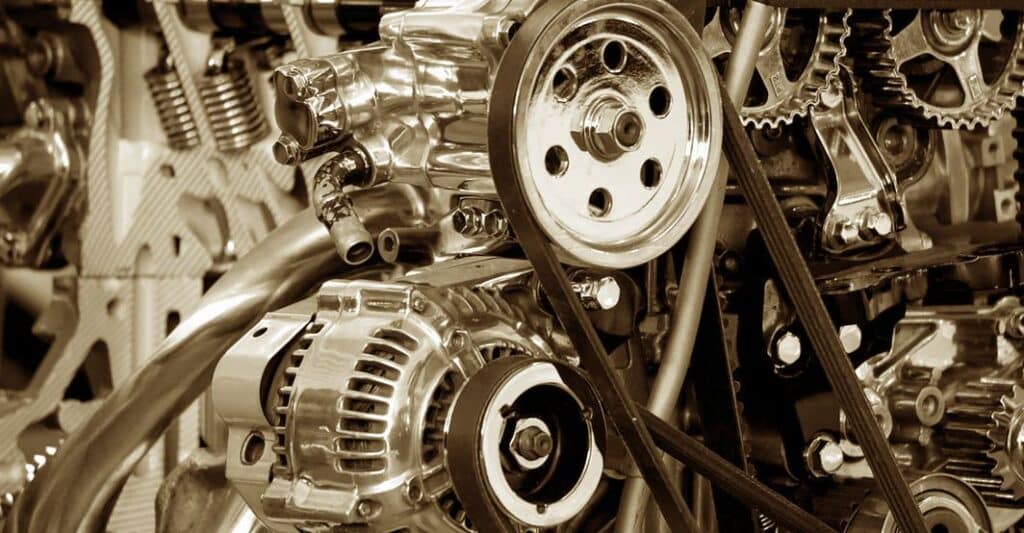What is a Compressor Motor?

A compressor motor is a vital component that supplies power to the compressor head. The head then compresses and forces air into the storage tank or directly via the airline. The compressor’s motor acts as the heart of the air compressor, much like an engine is to a car. It provides power to the air compressor.
Air compressors are used in various applications, from petrol pumps to manufacturing plants. And they are making their way into home workshops and garages. Models sized to bear different jobs, from inflating toys, balloons to powering devices such as nail guns and spray guns, are now available through various online and offline stores.
Here’s more on the show’s real star, the compressor motor.
How it works
Electric motors supply the power to operate compressors. As a mover, the motor should provide ample power to start the compressor, rev it to full speed, and keep the unit running under various conditions. Most air compressors operate using standard, three-phase induction motors.
A three-phase induction motor is an alternating current (AC) motor. This motor is either an asynchronous (induction motor) or synchronous motor and typically has three major parts.
- The stator– This is a chain of alloy steel and induction coils. There are three coils for every phase, thus the name.
- The rotor – This component contains the induction coils and metallic bars to make a circuit. The rotor surrounds the motor shaft and spins to create the mechanical motion of the motor.
- The enclosure – It fastens the rotor to the motor shaft and rotates when the motor shaft spins.
The rotating fan draws air in from the outside and pushes it through the stator and rotor, cooling the motor elements. It also dissipates the heat generated by the coils. The enclosure has end caps that have spots for electrical connections for the 3-phase motor.
These motors are powered by electricity, diesel, or natural gas. Electric motors are dependable, economical, and can generate enough power for everyday use at home or around your workshop or garage. But they can only be used where there’s electricity. On the other hand, gas-powered motors are more powerful and offer the convenience of portability.
How to choose a compressor motor?
You can get a compressor motor at any electric motor supplier worldwide. In India, your best bet is going to Godrej. They have high-quality compressor motors that guarantee long service life and reliable operation. But how do you know which motor best suits your needs? Here are a few pointers to help you out.
Power source
Current is what powers the motor. If it’s too much, you risk damaging it, but if it’s too little, it won’t apply enough torque to move it. That is why when picking an electric compressor motor, you should pay attention to how you will power your motor. For instance, if you use a compressor in your home garage, you will probably power it using the standard wall outlet.
This means you will need to cut down the current to prevent it from overloading the house’s electrical circuit, but doing so might mean you don’t have enough power to run the motor. So, picking a motor that operates at maximum efficiency with the available power source ensures optimal performance.
Motor specs
When picking an electric motor, you must factor in its specs. How much does it weigh? What are its size restrictions, and will it meet the application needs? On the same note, what are the motor’s maintenance requirements? How long can it run maintenance-free? What is the lifespan of the motor parts? Some motors, such as brush motors, wear out faster than others. That said, they are economical in some applications.
The environment
When selecting your compressor motor, you must consider the environment the compressor will be utilized in. Most motors are built to operate in clean, dry, and room temperature environments. This means avoiding using the motors in cold temperatures or wet conditions. That said, motors can be reinforced, waterproofed, and even made shock and dirt resistant to adapt to harsh environments. Considering the environment where you plan to use the motor ensures you can adjust it appropriately.
Type of application
Lastly, consider the type of application you want the compressor motor to operate in, as this will influence your choice. Ask yourself, will you want the motor to run continuously, with few gear changes? If so, an AC asynchronous motor is your best bet. A synchronous DC motor is your best option if you need a motor for dynamic applications. However, if you require precise positioning, a stepper motor is the way to go.
Finally, don’t forget to consider energy efficiency. With the rise of environmental consciousness in the wake of climate change, you would want to reduce your carbon footprint. For this, choosing a motor with high energy efficiency as stipulated by the International Electrotechnical Commission (IEC) is recommended.